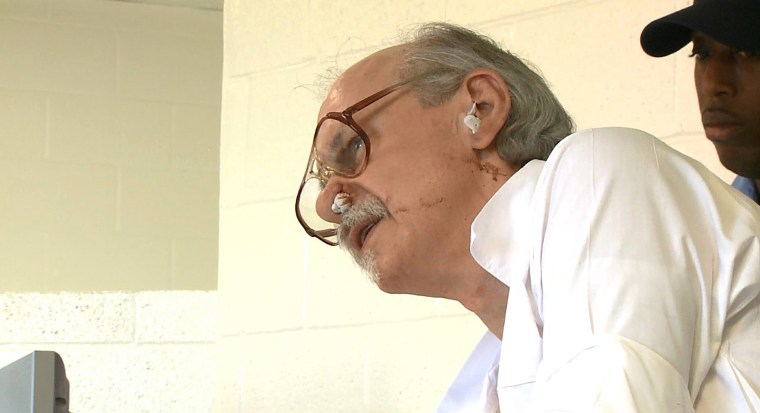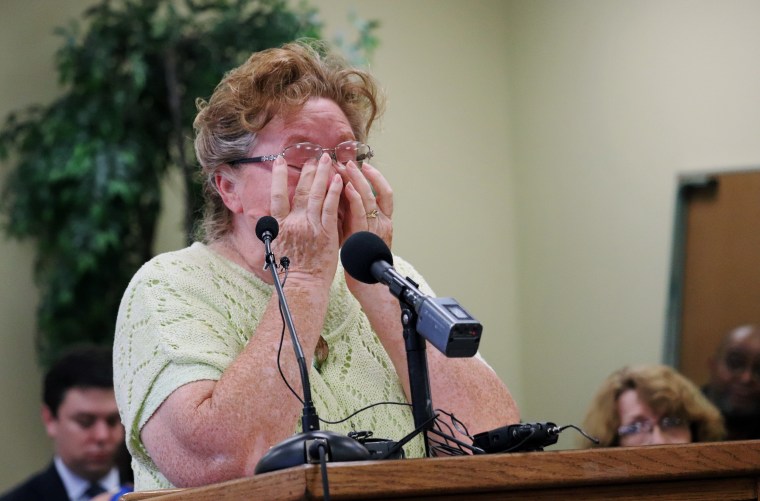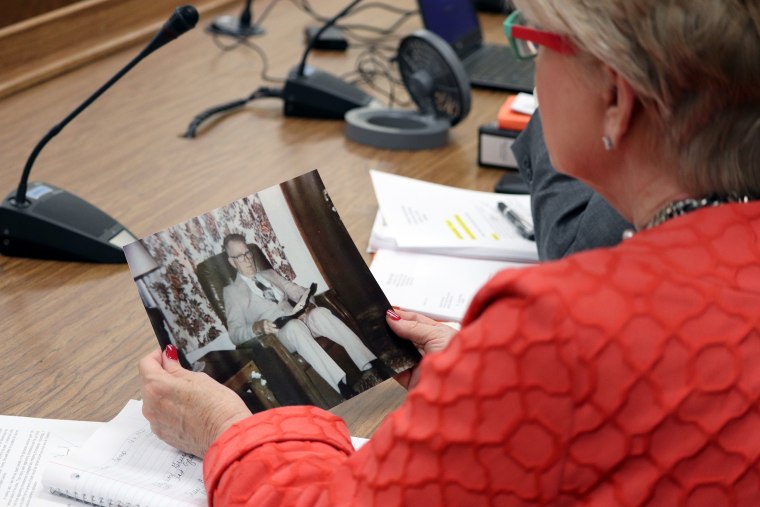An Arkansas death row inmate scheduled to be executed next week wants his head to be removed after his death and his brain to be examined by a doctor, his attorneys said.
Jack Greene's last will and testament includes a request that his head be "surgically removed from my body and transported out of state to an independent medical examiner, such as Dr. Jan Garavaglia," a former medical examiner in Florida who had a reality television show.
Garavaglia, reached by phone Friday, declined to comment on the request.
Greene, 62, is scheduled to be executed on Thursday. He was sentenced to death for the 1991 murder of retired pastor Sidney Burnett — who had accused him of arson — days after he killed his own brother.

Greene's attorneys say he suffers from severe mental illness and delusions. Greene claims in the will that the Arkansas Department of Corrections has caused him brain injuries and severe dementia, a connection he believes a medical examiner could prove.
"This is something he really insisted that he dictate to me and to write down," Greene's lawyer, John Williams, an assistant federal public defender, said in a phone interview Friday. "He wants to prove all the injuries that he believes have been committed against him."
An Arkansas circuit judge on Friday dismissed a lawsuit seeking to halt the execution. Williams said they have appealed to the state Supreme Court.
Greene tried to bring up the last will and testament in court Friday, but was silenced by a judge, Williams said. "I think it's important for people to understand what his mind is working like as he approaches his execution," Williams said.
It is unclear whether Greene's last will and testament could be fulfilled.
Arkansas Gov. Asa Hutchinson says he had reviewed "all documents, transcripts, and comments from interested mental health professionals," but he said Greene’s testimony at his parole board made it clear to him that the death row inmate understood his punishment and his decision to kill Burnett.
"Numerous courts have reviewed the case and I am satisfied that the Supreme Court's standards have been met and that he is competent to be executed," Hutchinson said in a statement. "As normal, I will continue to review any additional relevant facts as November 9 approaches."

The governor's office said they had not had a chance to review Greene's will as of Friday evening. Hutchinson is traveling in China and Japan on a trade mission and will return on Nov. 7 — two days prior to Greene's scheduled execution date.
Two dozen Arkansas mental health professionals and the American Bar Association urged Hutchinson to "show mercy" because they believe Greene to be mentally ill.
"While the ABA does not take a position for or against the death penalty per se, nor is Mr. Greene's guilt in the tragic murder of Sidney Burnett in dispute, the ABA has significant concerns about whether the death penalty is the appropriate punishment in his case in light of his severe mental illness," Hilarie Bass, the president of the American Bar Association, wrote in a letter.
Arkansas put four death row inmates to death in April — its first executions in nearly a dozen years. It had originally scheduled eight before the end of the month because the state's supply of the lethal injection drug midazolam was set to expire. Four of those executions were blocked by the courts.
Related: Arkansas Gov. on Executions: 'I Absolutely Made the Right Decision'
Greene’s execution was scheduled after prison officials obtained a new batch of midazolam, but on Thursday the Arkansas Supreme Court ruled that the state had to identify the drug’s manufacturer. But the court also ruled that the state was not required to identify sellers and suppliers.

Arkansas officials have argued that the identities of manufacturers, sellers and suppliers should be hidden by the secrecy statutes surrounding Arkansas’s execution laws. Otherwise, pharmaceutical companies would attempt to prevent the use of their drugs in executions, as two companies attempted during the April spate of executions.
"The Arkansas Supreme Court has correctly concluded that the lot, batch and control numbers on lethal injection drug labels should remain confidential under state law,” Arkansas Attorney General Leslie Rutledge’s office said in a statement. “While the Attorney General does not agree with other aspects of the Court’s ruling, she is pleased that the Court agreed with her arguments on this point."

